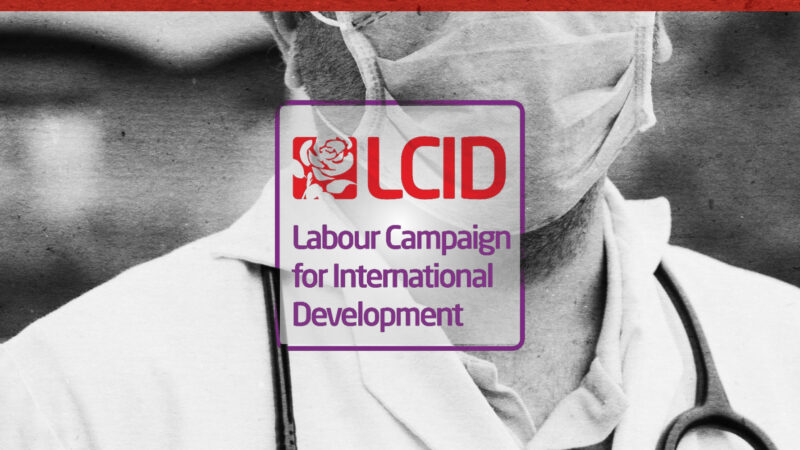
At the Labour Campaign for International Development, we are completely in awe of the heroic carers, nurses, doctors, porters, cleaners, posties and everyone fighting this virus on the frontline. We join the rest of the labour movement in calling for them to get the personal protective equipment (PPE) that they need to ensure that they don’t lose their lives whilst trying to save ours.
As campaigners fighting for a fairer world, we are also acutely aware of the devastating impact of this virus on people across developing countries. Without urgent action, it is only going to get worse. The poorest countries have weak health care systems, little testing equipment, hardly any ventilators and few medical supplies.
The Central African Republic has just three ventilators for its five million citizens, Uganda has more government ministers than intensive-care beds, and ten African countries have none at all. But this is not just a healthcare crisis. Half a billion people could be pushed into poverty across the world as lockdowns come into force and trade is disrupted.
The International Trade Union Congress (ITUC) estimated that almost 60% of countries in Africa, and over a third in the Americas, are not providing wage protection and income support for workers. And even where there is support, it’s not enough to cover essential costs – as is the case for people in two thirds of the countries across Asia.
Gordon Brown has been right to call for a global deal to tackle this global problem. As he and Shadow International Development Secretary Preet Gill have argued, there must be a coordinated effort to create and guarantee the availability, accessibility and affordability of a vaccine in every country. We must also ensure that developing countries get the $35bn that the World Health Organisation estimated they need to boost their healthcare systems.
And to prevent mass redundancies and a recession becoming a depression, stimulus packages will need to be provided to low income countries, and G20 governments and businesses will need to work together to finance furlough schemes to keep farmers and workers in international supply chains from falling into poverty.
World leaders are failing to agree anywhere near the levels of support and coordination needed. As we have long argued, poverty is political, and this crisis is demonstrating why being in power matters. It is worth noting how different the G20’s response was to the global recession in 2008, when we had a Labour government and a Democrat in the White House.
It is certainly a hugely positive step to see the G20 agree a suspension of debt service payments from official bilateral creditors until the end of this year – though as the Jubilee Debt Campaign has argued, debt to private lenders must also be suspended. It is good, too, that a summit held yesterday comprised of a group of rich countries – including the UK – has seen pledges made to boost the global health response.
But it is hugely disappointing that the Donald Trump administration has blocked the International Monetary Fund from issuing billions of ‘special drawing rights’ (SDRs) – its global reserve assets. Doing so could have provided valuable financial support to the world economy, including developing countries.
$600bn could be raised without the need for Congressional approval. By comparison, $3bn is needed for a vaccine, and $5bn for the Universal Social Protection Fund for the poorest countries, for which the ITUC is calling. Rishi Sunak and other G20 finance ministers must find a way to get SDRs approved or find other ways of raising the funds needed.
While there is so much need at home, it is understandable that some will worry about pursuing an international agenda. But our movement has always been at the forefront of campaigns to end global poverty and inequality. Thanks in part to campaigns by the co-operative movement, trade unionists, Christians on the Left and party activists – as well as the leadership shown by the last Labour government – huge progress has been made in the fight against global poverty in the last two decades.
For the sake of the women and men now losing their jobs or falling sick, we cannot let that progress be undone. A lesson from the past is that global recessions, and the damage that they do to us all, are best addressed quickly and boldly. Time is running out – world leaders have a responsibility to act, and act now.




More from LabourList
‘Labour won’t stop the far right by changing leaders — only by proving what the left can deliver’
‘Cutting Welsh university funding would be economic vandalism, not reform’
Sadiq Khan signals he will stand for a fourth term as London Mayor